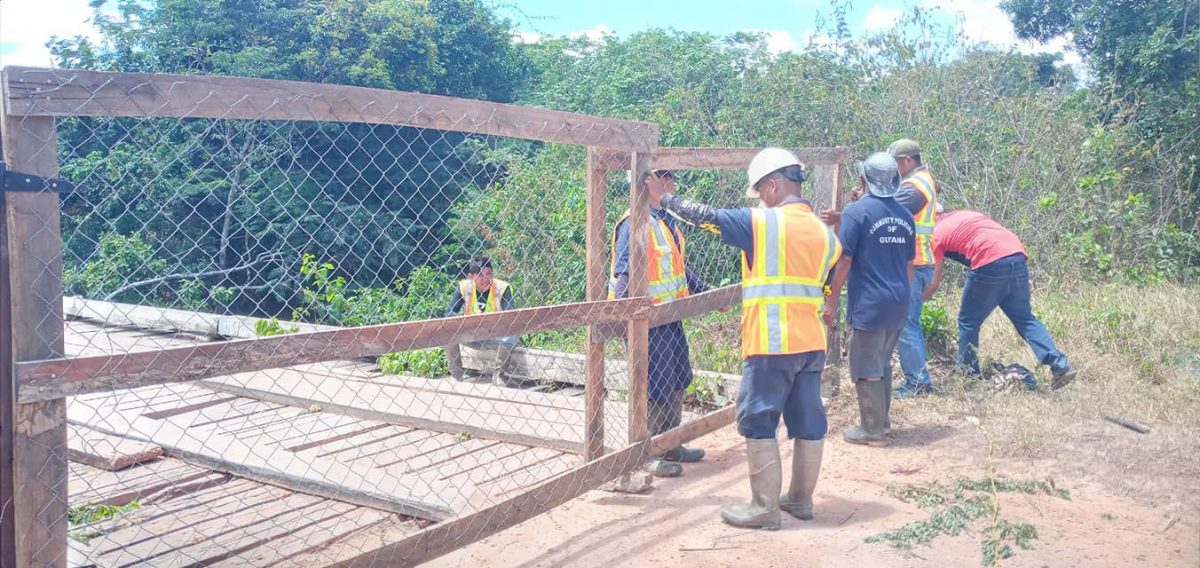Deputy Chairman of the National Toshaos Council (NTC) Paul Pierre is encouraging Indigenous leaders to restrict travel to and from their respective villages in order to prevent an outbreak of the novel coronavirus disease (COVID-19) in their communities.
Pierre is also the Toshao of Kwebanna, an Indigenous village in Region One.
In an interview with Stabroek News yesterday, Pierre said an outbreak in Indigenous communities would be disastrous because medical resources to treat COVID-19 are limited. He said that while the more modernised communities may have the capacity to deal with an outbreak, other far-flung villages do not.
He noted that while some of those villages rarely see outsiders, given the situation, persons living on the Coast may want to return to their families in the hinterland to wait until the pandemic passes. However, taking into consideration the way COVID-19 spreads, he said, such a chance must not be taken, especially by Indigenous leaders, and he has already cautioned the people of his community against doing that.
In addition, he stated, although all Indigenous villages reportedly have health centres, those health facilities have limited medical supplies and almost none of the equipment that will be needed in order for health officials to treat patients. Even now, he said, there is not enough disinfectants in various communities to meet the needs of the people.
“We are trying to prepare as much as we can but right now we don’t even have the basic items needed to prevent ourselves from getting the coronavirus. Those items that the Ministry of Public Health (MoPH) is telling us to buy like hand sanitizers and those other disinfectants, we can barely access those there and I heard how it selling out in Georgetown and here communities are asking for those items,” he said.
As the Toshao of Kwebanna, Pierre disclosed, he has already restricted travel to and from his community and would encourage all Indigenous leaders to do the same. He added that a number of other Indigenous leaders have also taken the same precaution as well. He said the Toshao of Santa Rosa, Wanita Phillips, has suspended boat travel from Charity to the Moruca sub-region. However, he said, persons are still entering villages without the knowledge of village councils from areas like Mabaruma and Baramita.
“It is difficult to keep track of people who are coming in without our knowledge but we are trying to do our best to monitor the situation,” Pierre said.
Additionally, all persons from the coast who have entered the communities of the Moruca sub-region subsequent to the confirmation of COVID-19 cases in Guyana, have been asked to self-quarantine for 14-days.
Meanwhile, Pierre stated that all persons in the sub-district have adopted the precautionary measures outlined by the World Health Organization (WHO). “So far, we have been well-informed about the disease, we have internet, so we have been reading the news online and we have kept ourselves updated on the situation,” he said before adding that village councils are restricting all public gatherings.
He added that health officials have recently visited the regions and have asked them to identify isolation facilities in their communities. Since then, he said, the village council of Kwebanna and Moruca have identified areas.
In Region Nine, the village council of Aishalton has constructed a checkpoint booth and gate at the Kabanwao Bridge to ensure that a COVID-9 outbreak doesn’t occur in the village.
Toshao Michael Thomas told Stabroek News that establishing the checkpoint is an initiative by council in collaboration with health officials and police officers stationed in the village. Health officials, village councillors and police officers will be at the checkpoint on a daily basis. Thomas said the health officials have developed a questionnaire to assist with screening purposes.
On Facebook, Thomas had posted, “we are calling on all persons traversing the area to cooperate with the team who will be at the check point.”
The gate, which was constructed by the Community Organised for the Restoration of the Environment (CORE), will be closed every afternoon at 6pm and will be reopened every morning at 6am. However, Thomas revealed that the village councils have been holding meetings with all stakeholders to plan ways they can monitor the gate 24/7.
Thus far, he said, everyone in the village is cooperating and adhering to precautionary and preventative measures. He also stated that the village council has held meetings to sensitise residents of Aishalton about COVID-19.
In addition, he revealed, many persons have left the village in favour of their farm homes, which they feel are much safer since most farms are located miles apart. He added, since there is currently a shortage of basic food supplies in Lethem and the prices for those items have sky-rocketed, persons in the villages are depending on the crops at their farms for food.
Like Pierre, Thomas stressed that the measures that the village council has taken are not intended to discriminate against persons but to ensure that the people who chose him as their leader are protected. He added that one of the reasons is also due to the lack of the medical supplies at the Deep South Rupununi District Hospital, which is located in Aishalton.”There is not enough medical supplies and there is no protective equipment,” he said.






